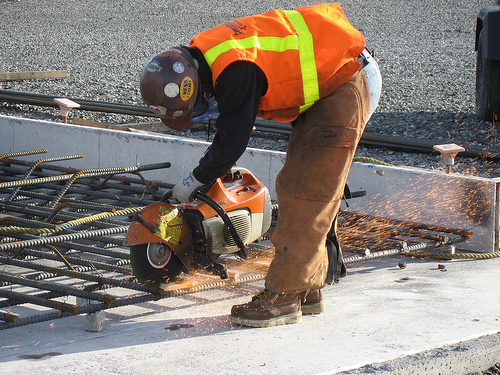OLYMPIA—Democratic lawmakers held nearly 90 listening sessions across the state about transportation needs before developing a proposal that would invest $26 billion in transportation over the next 16 years.
“Our proposal is much more substantial than any in state history because the needs and challenges are so much bigger,” said Transportation Chair Jake Fey (D-Tacoma). “Those needs include long-overdue investments in preserving and maintaining our current transportation system, help for frontline communities, and carbon reduction to fight climate change. Our proposal will also mean a boom in construction jobs in every corner of the state.”
The lawmakers who led the listening sessions participated in a press conference on Tuesday, Jan. 19, to talk about the details of the proposal, which is separate from the two-year transportation budget. Priorities in the plan include maintenance and preservation, investing in frontline communities, supporting economic recovery, aggressive carbon reduction, and living up to our commitments, including the restoration of fish passages.
“Everyone deserves a voice,” said Rep. Bill Ramos (D-Issaquah). “Our proposal gives members from underserved communities a place on state boards that help determine projects and policies. We will also help women and minority-owned businesses get certified to qualify for transportation projects.”
The proposal is unique in that it raises new revenue without new borrowing through bonds, saving billions of taxpayer dollars in interest costs.
“We heard in our listening sessions that stakeholders wanted transparency and a clear connection to transportation investments,” said Rep. Vandana Slatter (D-Bellevue). “A good example is the carbon fee, with all of those revenues dedicated to multimodal transportation along with carbon reduction and electrification investments. This will give people more transportation choices while moving our state toward a green transportation future.”
Another connection between revenue and investments is how indexing the fuel tax to the Consumer Price Index will pay for the increased costs of preservation and maintenance.
“It’s common sense to protect and strengthen our vital bridges and infrastructure,” said Rep. Marcus Riccelli (D-Spokane). “Our proposal invests $4.6 billion toward that effort and greatly enhances support for city and county governments to do much-needed preservation and maintenance projects on the local level. Importantly, we also live up to our commitments by finishing what we started when it comes to existing projects on the books.”
Finally, the plan makes significant new investments including new funding for highways, ferries, culverts, and carbon reduction.
“We’re proposing $6.7 billion in new road-related investments, $1 billion for the Interstate Replacement Bridge connecting Washington and Oregon, and fully funding fish passages,” said Rep. Sharon Wylie (D-Vancouver). “There are also significant investments to reduce carbon. We do so using a wide range of strategies, including alternative fuels, the electrification of vehicle fleets, and increased spending for multi-modal services such as transit and special needs transportation along with bike and pedestrian projects.”
You can find more details about the proposal here:
http://leap.leg.wa.gov/leap/Budget/Detail/2021/htRevenueAndSpendingFramework1_19.pdf

